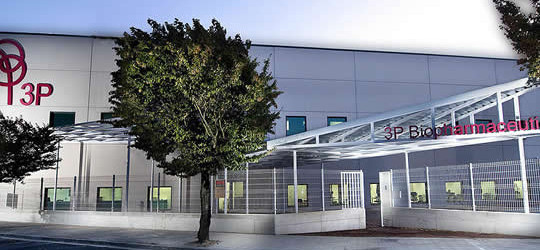Manufacturing biotechnology drugs used to treat colon cancer or multiple sclerosis is a very complex process that is carried out in specialized production centers. One of these, the only one of its kind in Spain and one of the few in Europe, is owned by the company 3P Biopharmaceuticals.
The basic principle behind drugs that are derived from biotechnology comes, for example, from taking pieces of DNA containing the gene that produces human insulin and inserting them into E. coli bacteria, a microorganism that is present in the intestines of almost all mammals. This effectively tricks the microorganism into producing human insulin, a substance that is essential for treating millions of diabetics around the world.
Biotechnology drugs are more effective and have fewer side effects. However, producing them is much more complex than making traditional medications such as aspirin or omeprazole, given that this process involves the use of live organisms such as bacteria, cells or yeast. As a result, in order to create medications of the future manufacturers not only require new molecules that are capable of treating colon cancer or multiple sclerosis; it’s also essential to have very special production facilities.
One of these, the only one of its kind in Spain and one of the few that exists in Europe, is owned by the company 3P Biopharmaceuticals. The plant is located in Noáin which is close to the northern Spanish city of Pamplona; the latter is home to CIMA (Center for Applied Medical Research of the University of Navarra), a research center which is often at the top of the rankings for Spanish patents.
3P Biopharmaceuticals has been very successful and is increasing its presence outside of Spain. Over time the company has established relationships with customers in France, Switzerland, Italy, England, Mexico and Argentina. Recently it has begun working with a large US multinational. The company is also involved in a major European project called Flutcore which aims to produce a universal flu vaccine.
